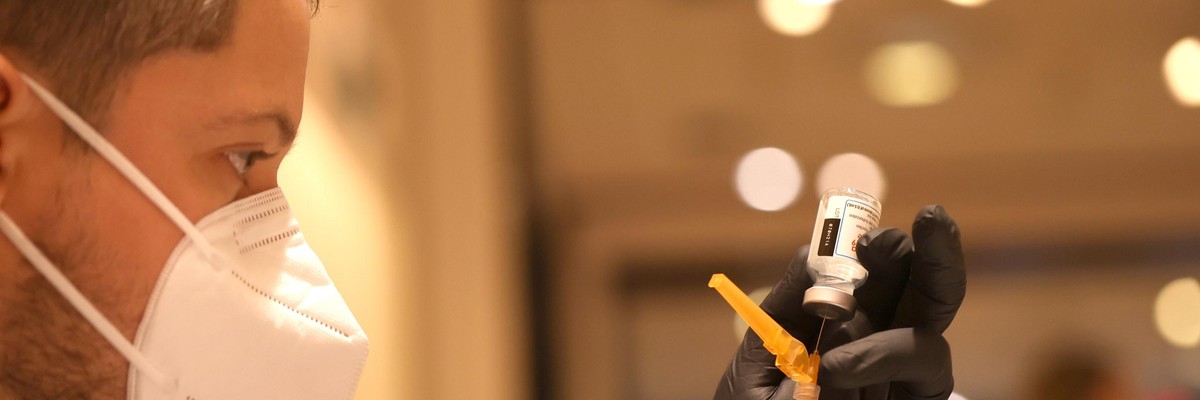The Biden White House is reportedly preparing to ration coronavirus vaccines as Senate Republicans continue to obstruct a multibillion-dollar Covid-19 aid package, sparking outcry from public health experts who say GOP obstruction is hampering the nation's pandemic response as infections rise.
Politico reported late Thursday that the Biden administration "may soon need to run its sprawling pandemic response on a shoestring budget" as Republicans in Congress hold up a $10 billion aid package that a bipartisan group of senators agreed to in late March.
"Among the sacrifices being weighed are limiting access to its next generation of vaccines to only the highest-risk Americans--a rationing that would have been unthinkable just a year ago, when the White House touted the development and widespread availability of vaccines as the clearest way out of the pandemic," Politico noted, citing unnamed people familiar with the administration's discussions.
"Other administration officials in recent weeks have weighed the prospect of transitioning responsibility for vaccines and some treatments to the traditional insurance market as early as next year," the outlet added, a move that would make it more difficult for low-income people and those without private insurance to obtain vaccines and treatments.
Dr. Uche Blackstock, an emergency physician and public health advocate, wrote on Twitter that "'ration vaccines' wasn't something I thought we'd be hearing in 2022, but here we are."
"It's a result of poor preparation, underinvestment in public health, political polarization, and Covid minimization," Blackstock added.
In response to Politico's reporting on the funding stalemate and the vaccine rationing that could follow, The American Prospect's Ryan Cooper lamented, "The stupidity of this is flatly incomprehensible."
"Our political institutions do not work," he added.
Lawmakers' failure to approve new coronavirus aid has already had serious consequences for the Biden administration's domestic pandemic response. In recent weeks, funding shortfalls have forced federal officials to shutter programs that covered the costs of coronavirus vaccines, tests, and treatments for the uninsured.
The Washington Postreported Wednesday that "there appears to be no immediate pathway in the Senate for a long-stalled agreement" on coronavirus aid as Republicans continue to object.
Meanwhile, confirmed Covid-19 cases are ticking up across the U.S., an increase likely driven by a highly contagious subvariant of Omicron--commonly known as "stealth Omicron"--that now makes up nearly half of all new infections. The Biden administration warned last week that the U.S., which has officially recorded more than 1 million coronavirus deaths, could see 100 million new cases in the upcoming fall and winter.
"It's really concerning that, two-plus years into a global pandemic, we're still needing to have these arguments on how best to protect people," Chrissie Juliano, executive director of the Big Cities Health Coalition, told Politico on Thursday. "The people who will be impacted the most are the most vulnerable."
Congressional inaction is also hindering the global pandemic response. The $10 billion aid deal that Republican and Democratic senators reached in March would not include any money to fight Covid-19 outside the U.S.
Public health campaigners have long warned that rich countries and pharmaceutical companies' hoarding of doses and technology has resulted in an "artificial rationing" of vaccines and treatments, leaving poor nations without adequate access. To date, according to the World Health Organization, just 15% of people in low-income countries have been vaccinated against Covid-19.
"At the current rate, it will take another two and a half years for low-income countries to be able to vaccinate 70% of their populations with an initial two doses," Robbie Silverman, the senior manager of private sector advocacy at Oxfam America, said in a statement Friday. "And this is simply unjust."

